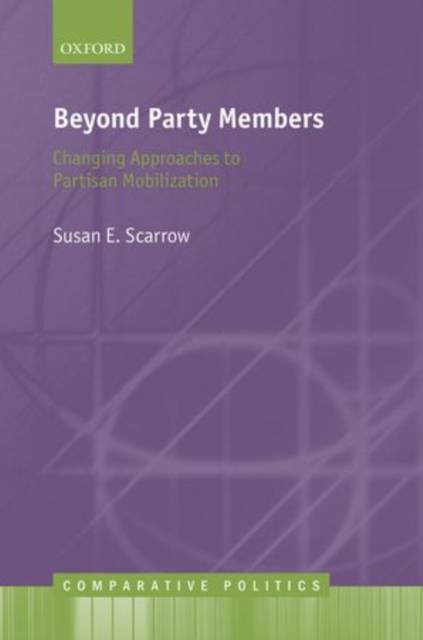
- Retrait gratuit dans votre magasin Club
- 7.000.000 titres dans notre catalogue
- Payer en toute sécurité
- Toujours un magasin près de chez vous
- Retrait gratuit dans votre magasin Club
- 7.000.000 titres dans notre catalogue
- Payer en toute sécurité
- Toujours un magasin près de chez vous
160,45 €
+ 320 points
Description
For more than a century party members have played a central role in many parliamentary democracies, helping political parties to mobilize voters, and visibly linking party leaders with their grassroots supporters. Yet in the twenty-first century, party membership is undergoing rapid changes. In many parties, memberships are becoming numerically smaller at the same time that individual members are becoming more politically powerful. Beyond Party Members investigates two questions connected with these changes. First, when and why did party memberships start falling, and what does this reveal about who benefits in party-membership relationships? Second, why have numerical declines in overall party membership coincided with expanding political rights for individual party members? To shed light on both puzzles, the author examines the origins of membership-based organization in nineteen countries, and considers contemporary parties' efforts to adapt this model to new circumstances. Her study shows why both supply-side and demand-side forces are leading parties to offer party members more, and more meaningful, opportunities to participate in party decisions. They also lead parties to offer new and lower-cost modes of affiliation. These changes are producing Multi-speed Membership Parties, ones that offer supporters multiple ways to connect with a party. Beyond Party Members examines the consequences of these ongoing transformations for political parties, and for the democracies in which they compete. Comparative Politics is a series for students, teachers, and researchers of political science that deals with contemporary government and politics. Global in scope, books in the series are characterised by a stress on comparative analysis and strong methodological rigour. The series is published in association with the European Consortium for Political Research. For more information visit: www.ecprnet.eu. The Comparative Politics series is edited by Kenneth Carty, Professor of Political Science, University of British Columbia; Emilie van Haute, Professor of Political Science, Universite libre de Bruxelles; and Ferdinand Muller-Rommel, Director of the Center for the Study of Democracy, Leuphana University.
Spécifications
Parties prenantes
- Auteur(s) :
- Editeur:
Contenu
- Nombre de pages :
- 254
- Langue:
- Anglais
- Collection :
Caractéristiques
- EAN:
- 9780199661862
- Date de parution :
- 13-01-15
- Format:
- Livre relié
- Format numérique:
- Genaaid
- Dimensions :
- 163 mm x 236 mm
- Poids :
- 539 g







